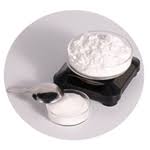
- +86-13363869198
- weimiaohb@126.com

Nov . 27, 2024 02:45 Back to list
Exploring API Development and Pharmaceutical Intermediate Innovations for Enhanced Drug Production
The Role of APIs and Pharmaceutical Intermediates in Drug Development
The pharmaceutical industry plays a pivotal role in advancing medical science, and at the heart of this industry lie Active Pharmaceutical Ingredients (APIs) and pharmaceutical intermediates. Understanding these components is crucial as they are fundamental to drug formulation, and their significance continues to grow with the advances in biotechnology and synthetic methodologies.
What are APIs?
Active Pharmaceutical Ingredients (APIs) are the biologically active components in a medication that provide the intended therapeutic effects. These substances are essential for the efficacy of drugs and are involved in the biochemical interactions that lead to desired health outcomes. APIs can be derived from natural sources, such as plants and microorganisms, or synthesized through chemical processes in laboratories. This versatility allows for a broad range of applications, from simple analgesics to complex biologic therapies.
The Importance of Pharmaceutical Intermediates
Pharmaceutical intermediates are the chemical compounds that are produced during the synthesis of APIs. They serve as building blocks in the manufacturing process and can include a range of substances such as solvents, reagents, and by-products that appear during various stages of API production. Their proper management and quality assurance are vital in ensuring that the final API meets the stringent regulatory standards set forth by health authorities, such as the FDA and EMA.
Synthesis and Development
The synthesis of APIs typically involves intricate chemical processes that require a thorough understanding of organic chemistry and pharmacology. Researchers often use a combination of synthetic routes to ensure high yields and purity of the final product. The development of APIs encompasses the entire lifecycle—from initial research and development (R&D) to scale-up production, where pharmaceutical intermediates play a crucial role.
Recent advancements in technology and methodology have improved the efficiency of API synthesis. Techniques such as continuous flow chemistry, green chemistry, and biocatalysis have gained popularity as they minimize waste and reduce environmental impact. These innovations not only enhance the yield of APIs but also provide opportunities for the development of novel drugs that were previously deemed too difficult to synthesize.
api and pharmaceutical intermediates

Regulatory Considerations
The production of APIs and intermediates is heavily regulated to ensure safety, efficacy, and quality. Regulatory agencies around the world require stringent testing and validation processes throughout the manufacturing stages. Compliance with Good Manufacturing Practices (GMP) is vital for pharmaceutical companies, as any lapses can result in significant repercussions, including product recalls and legal issues.
The implementation of robust quality control measures ensures that pharmaceutical intermediates are consistent and meet predefined specifications. This is particularly important given that variations in intermediate quality can drastically affect the final product's safety and efficacy. Regulatory frameworks demand detailed documentation and traceability to ensure accountability throughout the supply chain.
Market Trends and Future Directions
As the demand for new and innovative therapies continues to rise, the API market is expected to grow significantly. Biotechnology and personalized medicine are primary drivers of this growth, leading to an increased focus on complex molecules that require advanced synthesis technologies. As pharmaceutical companies vie for competitive advantage, investments in R&D will likely escalate.
Moreover, the COVID-19 pandemic has underscored the importance of resilient supply chains for pharmaceutical intermediates and APIs. Many countries are now emphasizing local production capabilities to reduce dependency on overseas suppliers, which could reshape the landscape of API manufacturing in the coming years.
Conclusion
In summary, APIs and pharmaceutical intermediates are crucial components in the drug development process, impacting everything from efficacy to regulatory compliance. As technological advancements continue to reshape the landscape of drug synthesis, the importance of these ingredients is only set to grow. Fostering innovation while adhering to strict regulatory standards will be essential for the continuous evolution of the pharmaceutical industry and the development of the next generation of therapies. As we move forward, the emphasis on quality, sustainability, and efficiency in the production of APIs and intermediates will be paramount in addressing global health challenges.
-
Top CAS: 79099-07-3 Factories & Wholesale Supplier from China
NewsJul.30,2025
-
High-Quality GS-441524 for White Liquid Type Factories & Suppliers
NewsJul.29,2025
-
High-Quality Pharmaceutical Intermediates for Sale – Reliable Supply
NewsJul.29,2025
-
High-Quality Pharmaceutical Intermediates for Sale - Reliable Solutions
NewsJul.29,2025
-
High-Quality Pharmaceutical Intermediates Supplier for Global Market
NewsJul.28,2025
-
GS-441524 for White Liquid Type Factories – High Purity & Reliable Supply
NewsJul.28,2025